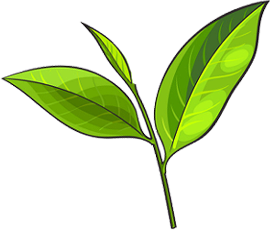The tea seeds for propagation are collected from the seed baries (orchards) planted specially for the purpose of seed production. In the seed barie, the tea fruit is allowed to dehisce on the tree and the dropped seeds are collected from the ground that is cleaned before seeds starts to fall. As tea seeds loose viability rapidly, the normal practice is to collect the dropped seeds everyday. After collection, very small seeds are eliminated passing through a rotary sifter. The normal size seeds are then put in a tank filled with water and allowed to soak for 2-3 hours. The sinker seeds are considered to be sound seeds.It is a usual practice to cut open a sample of 50 to 100 seeds from the batch to examine any mechanical, insect and pest damage. If the cotyledons a certain percentage of seeds of the sample, generally 5 per cent, are found starred, cheesy, shrunken or otherwise damaged by pest and diseases, then damaged seeds are sorted out by experienced sorter .The sorted seeds are packed in wooden in units of 20 kg using moist sand, sub soil, powdered charcoal or ash or mixtures of two or more of these as packing materials.



 Source of Seed
Source of Seed 
